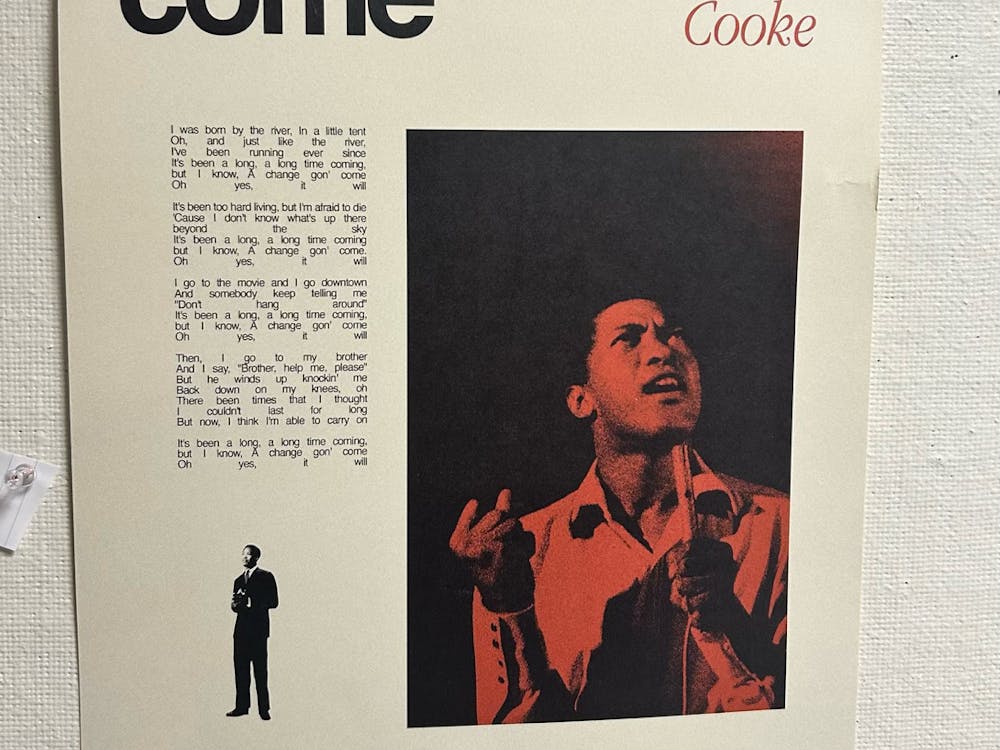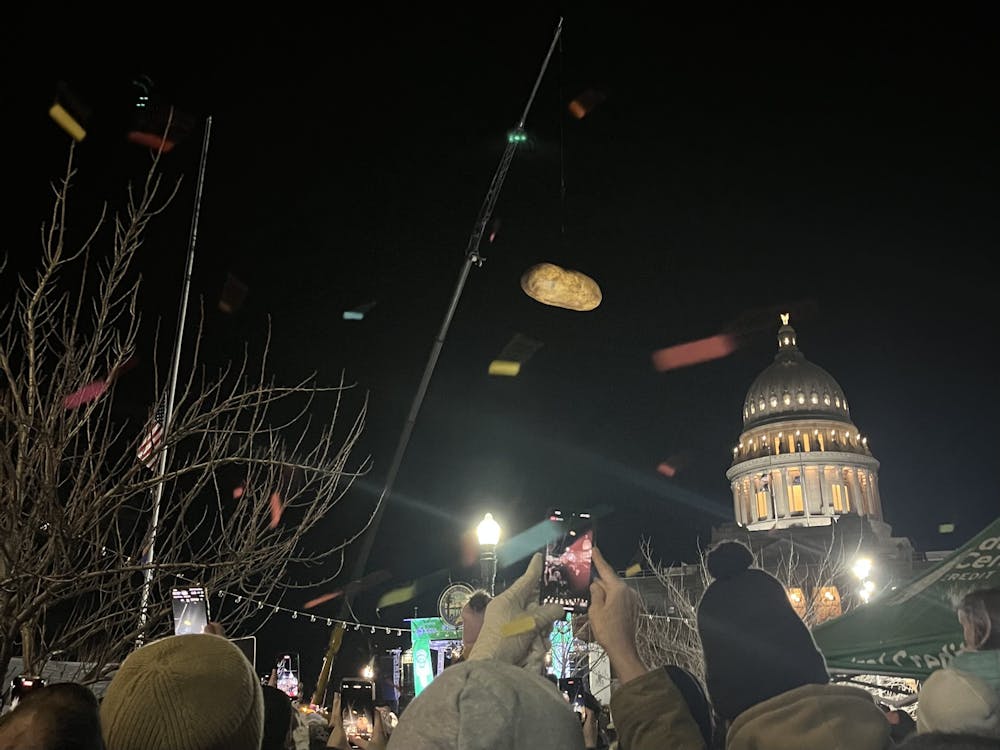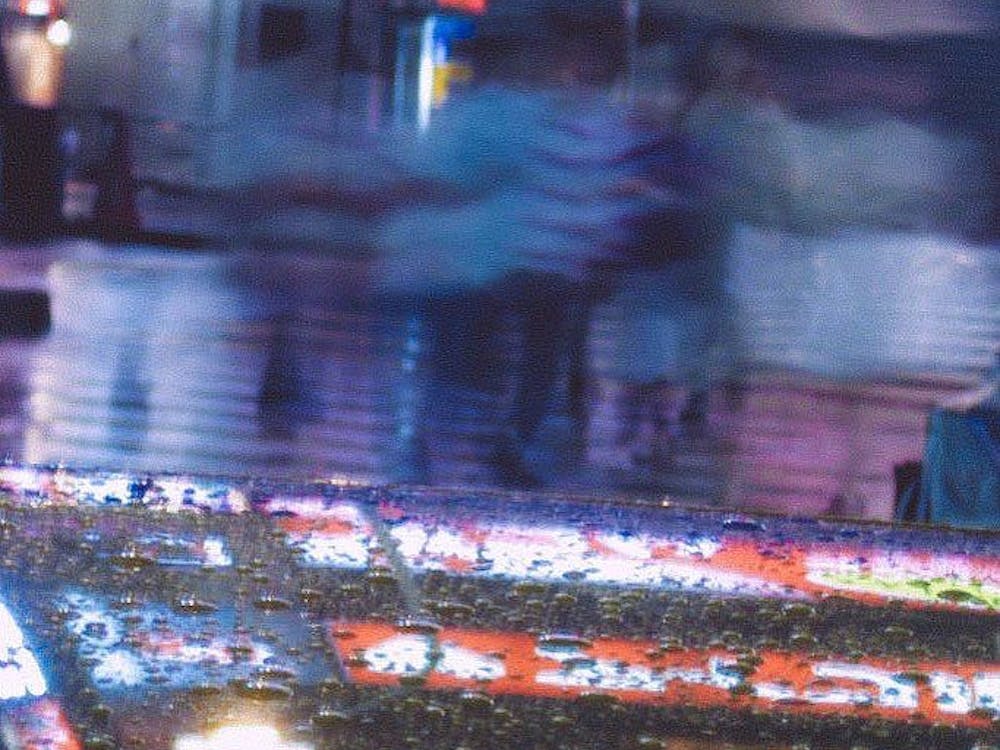Cooking is a friend that doesn’t hold your hand.
It leaves you to figure things out on your own: mischievous, unforgiving and always watching. If you’re using a recipe, it can act like an unhelpful supervisor, setting expectations without ever checking in. It won’t stop you from burning garlic or tell you that your “medium-high heat” is really the scorching sun. Still, it waits for your next move, smugly patient.
I met cooking as a stranger. My first professional kitchen job this past summer scared me — not the food itself, but the possibility of ruining it. My hands didn’t move with rhythm, and I couldn’t tell if what I made needed more salt, fat, acid or heat. But family meals at 4 p.m. always saved the day.
Every evening, the kitchen cooked for everyone, front and back of house, and we’d eat outside on the closed-off sidewalk on Broome Street. We made hearty meals out of whatever was about to go bad in the walk-in: hearty bouillabaise from scraps, tacos with leftover short rib, even Kansas City-style barbecue on a whim. Even our simplest meals — spiced, stewed ground meat with rice, our “slop” meals — felt like fine dining to me. As I sat and ate, I felt the warmest I ever had. I wanted to do that someday: to feed people, to make them feel cared for, to cook without hesitation.
Cooking became a kind of companion after that, but one that refused to coddle me. I had to listen — to the olive oil with its dancing streaks that told me it’s hot enough, to the small bubbling around the edge of the pot that whispered it’s time to cover the rice. A pan hums when you’re paying attention.
Failure in cooking can leave you with a warped image of yourself — someone careless with their ingredients, oblivious to what’s right in front of them. But for many of us, away from home for the first time and left to fend for ourselves, college becomes our first real trial by fire. Cooking isn’t passed down the way it used to be, and most of us are winging it. It’s humbling, but also strangely generous, because each mistake builds intuition. You start to know how much oil and salt to toss your vegetables in before roasting them and what “done” looks like for something you’ve never made before. Cooking teaches you to set standards for yourself and not abandon them. That kind of confidence naturally follows you outside the kitchen.
That’s not to say that cooking doesn’t have its opinions. As soon as I think I’ve figured something out, I’ll drop a yolk on the floor or overshoot the salt by a mile; it’s dramatic that way. Often I’ll talk back — curse at the pan, apologize to the quality produce, laugh when something somehow tastes good despite everything. I can tell this friend is smirking back at me.
Sometimes I feel urges to cook so strong that it borders on childish. I remember sneaking Oreos from their plastic wrap (we didn’t have the classic American glass cookie jars) or making unusual combinations I saw online, like toast with peanut butter, half-sour pickles and chili oil. Those are examples of the simplest cravings: the least divisible proofs of what makes us human. Now in college, I crave the freshness of something acidic and herbaceous when the week feels foggy; at other times, I crave the warmth of a broth heavy with stock when I miss home. Cravings don’t lie, but they’re tricky to translate, hard to materialize into a meal in front of you. Cooking makes that push-and-pull, almost animalistic ritual challenging and deeply satisfying. Your stomach will whine until you listen.
On Saturday mornings, I wander through the farmers’ market without a list. My curiosities lead me: the last tomatoes of summer, “the best basil ever,” shiitakes and Swiss chard for soup. Now, apples. I go back to my dorm, start cooking, taste as I go and have a quiet conversation between my senses and what’s in front of me. My dorm kitchen is small and mean. The burners are janky, the overhead fan sounds like a dying animal, and I have to use random mugs in place of measuring cups. Still, there’s something meditative about it. There’s an eerie kind of silence when something’s almost done cooking, a quiet that feels like waiting for someone you know will show up.
Cooking ties me to home even as it helps me invent new ones. Sometimes I do it to procrastinate thinking and end up thinking better. It’s a living skill and a habit that grows with me.
Sometimes I wonder if cooking will ever stop feeling like magic. Maybe one day I’ll know exactly what I’m doing, but I don’t think that’s what it wants from me. Cooking likes to keep me guessing — to look closer, to taste again, to trust my gut. If I ever stop being surprised by it, maybe it’ll mean it stopped being my friend.
Lauren Kim is a sophomore majoring in Philosophy and International Studies from Cortlandt Manor, N.Y.





